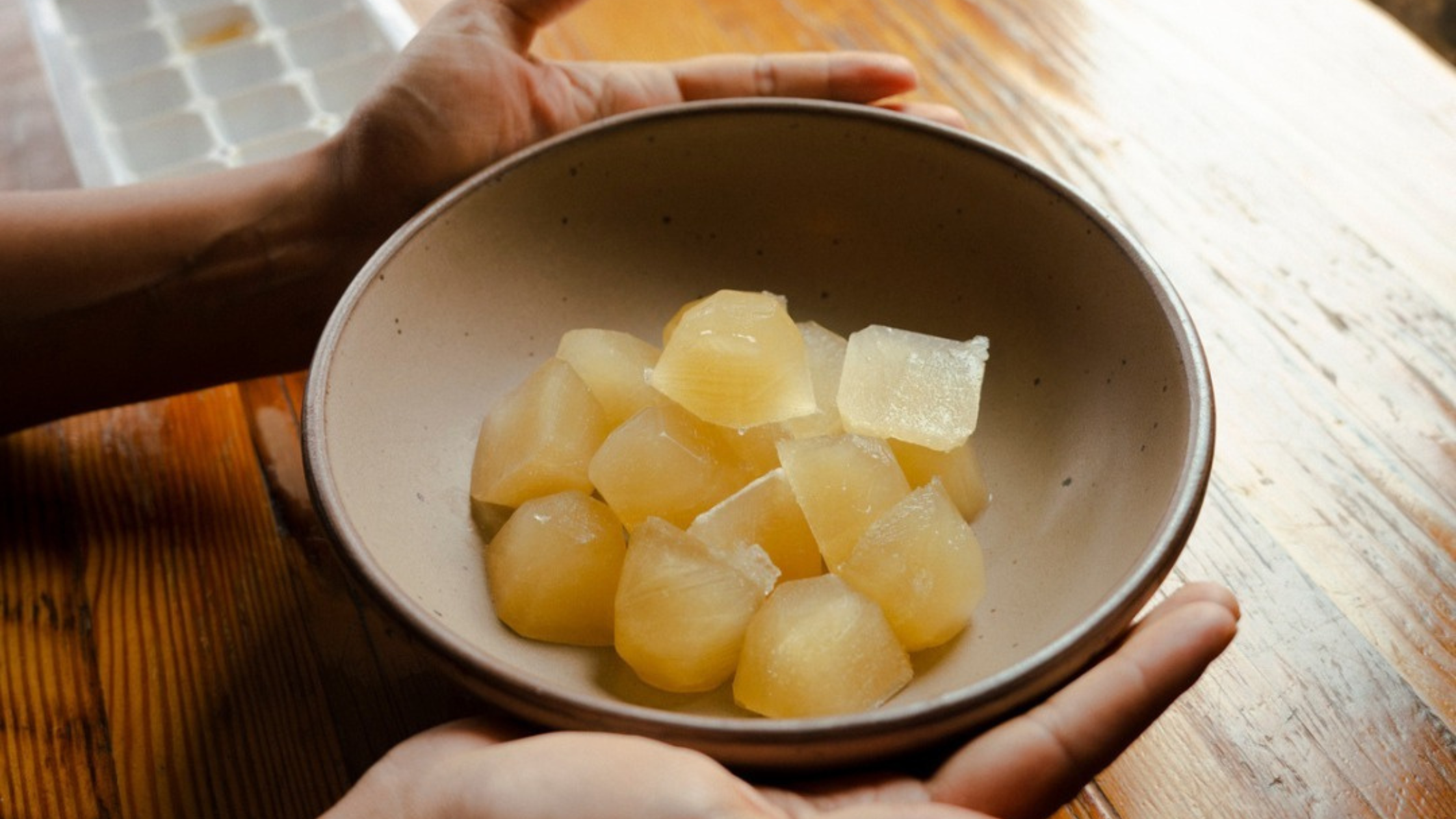Chicken Bone Broth for Babies with Allergies or Sensitivities
The aValue of Healthy And Balanced Food: Why Bone Broth Is a Fantastic Option for Infants
Bone broth stands out as a nutrient-dense choice, providing crucial vitamins and minerals that support development and advancement. What are the best methods to present bone broth to your little one?
Nutritional Advantages of Bone Broth for Newborns
When you present bone broth to your baby's diet plan, you're offering a nutrient-dense food that provides many health advantages. Loaded with important vitamins and minerals, bone broth consists of calcium, magnesium, and phosphorus, which sustain your infant's growing bones. It's likewise abundant in collagen, helping in the growth of healthy skin, joints, and connective cells.
Moreover, bone broth is a superb resource of amino acids like glycine and proline, which play a significant function in overall growth and muscle growth. These nutrients help advertise a strong immune system, setting a solid structure for your infant's wellness.
In addition, bone broth is very easy to digest, making it a gentle alternative for your youngster. By incorporating this wholesome food right into their dishes, you're guaranteeing they obtain important nutrients required for their general well-being. Go in advance and make bone broth a staple in your baby's diet plan!
Just How Bone Broth Supports Food Digestion
Bone broth is loaded with vital nutrients that can really benefit your child's digestion. It advertises digestive tract health and wellness and helps with nutrient absorption, making it a fantastic enhancement to their diet regimen. By integrating bone broth, you're setting the stage for a much healthier digestion system.
Nutrient-Rich Make-up
One of the most nutrient-rich foods you can introduce to your infant's diet plan is bone broth, which is packed with important minerals and amino acids that sustain healthy and balanced digestion. Rich in collagen, bone broth helps strengthen your baby's intestine cellular lining, making it much easier for their body to soak up nutrients. By incorporating bone broth into your child's dishes, you're providing them a wholesome food that nurtures their digestive system successfully.
Promotes Gut Wellness
As you introduce bone broth into your infant's diet plan, you'll find it not only nourishes however also advertises digestive tract health properly. Rich in gelatin, bone broth assists relieve the digestive system, minimizing swelling and sustaining a healthy and balanced intestine lining. This is important for babies, as a balanced gut atmosphere lays the structure for general health. Additionally, the amino acids found in bone broth, such as glycine, help in digestion and can aid stop common tummy troubles. By incorporating this beneficial liquid, you're providing your baby with vital nutrients that add to a flourishing digestion system. Eventually, a healthy and balanced digestive tract can influence whatever from immunity to mood, making bone broth a superb selection for your youngster.
Aids Nutrient Absorption
Presenting bone broth not only sustains digestive tract health and wellness yet likewise plays a significant duty in aiding nutrition absorption. When you give your infant bone broth, you're supplying an abundant source of minerals and amino acids that improve their digestion procedures. The gelatin in bone broth helps to relieve the gut lining, boosting its capacity to soak up vital nutrients. This indicates that essential minerals and vitamins from various other foods are more efficiently made use of by your baby's expanding body. Additionally, bone broth contains collagen, which sustains the growth of healthy cells and organs. By integrating this nutrient-dense liquid into your infant's diet plan, you're ensuring they obtain the maximum advantage from their dishes, advertising total health and wellness.
Reinforcing the Immune System With Bone Broth

Furthermore, bone broth contains glycosaminoglycans, like glucosamine, that can improve the body immune system's capability to function successfully. This implies it not just aids in constructing defenses but additionally help in recovery from health problems. By integrating bone broth into your child's diet, you're offering an all-natural source of nourishment that advertises wellness. Consider making bone broth a staple in your infant's dishes, as it can play an essential role in their immune wellness and development.
Easy Ways to Include Bone Broth Into Baby's Diet plan
Integrating bone broth right into your baby's diet plan can be easy and gratifying. You can also use bone broth as a base for directory soups or stews that you prepare for the family, ensuring your baby gets a taste of tasty, healthy meals.
Another alternative is to offer bone broth by itself. Cozy it up and provide it in a sippy cup or little dish-- it's a great method to introduce brand-new tastes. If your baby appreciates grains, take into consideration cooking rice or quinoa in bone broth as opposed to water for extra nourishment. Lastly, you can freeze bone broth in ice cube trays, making it simple to add a cube to various recipes whenever you desire. These approaches will certainly aid your child reap the benefits of bone broth effortlessly!
Homemade vs. Store-Bought Bone Broth: What to Pick
Which is much better for your baby: homemade or store-bought bone broth? Self-made bone broth provides you total control over the components.
On the other hand, store-bought alternatives are hassle-free and conserve you time. They usually contain preservatives and might not match the depth of flavor and nutrition you get from homemade broth. If you site select store-bought, look for brand names that are organic and devoid of additives.
Ultimately, if you have the time and resources, homemade bone broth is the exceptional option for your child's health and wellness. If you're short in a timely manner, choose a top quality store-bought choice as a backup.
Age-Appropriate Bone Broth Offering Recommendations
As your baby grows, it is very important to tailor bone broth offering pointers to their developing stage. For infants around 6 months, begin with a few spoonfuls of diluted bone broth. Mix it with water or bust milk to make it easier for them to digest. As they become familiar with flavors, you can slowly introduce thicker broth by reducing the dilution.
Once your baby gets to around eight months, you can offer it cozy in a sippy cup or include it to soft foods like purees. By the time your little one is around a year old, consider providing bone broth as a standalone drink or blending it right into soups and stews. Simply ensure to keep the broth reduced in salt. Constantly keep track of for any type of responses, and consult your pediatrician if you have concerns concerning introducing brand-new foods. Enjoy this nourishing addition to your child's diet!
Other Healthy And Balanced Foods to Couple With Bone Broth for Babies
When you're aiming to improve the dietary worth of bone broth for your infant, think about pairing it with nutrient-dense vegetables like carrots and spinach. Whole grain options, such as quinoa or brown rice, can also add structure and fiber. In addition, integrating healthy and balanced protein resources like shredded chicken or lentils will certainly round out the dish nicely.

Nutrient-Dense Veggies
Nutrient-dense vegetables are a great addition to bone broth for infants, improving both taste and nutrition. Incorporating veggies like carrots, spinach, and sweet potatoes can increase the vitamin and mineral content of your broth.
You can quickly blend these vegetables right into the broth or offer them as soft, prepared pieces together with it. This not just presents new flavors but likewise urges your little one to delight in a variety of nutrients. By coupling nutrient-dense veggies with bone broth, you're laying the foundation for a healthy and balanced diet regimen right from the beginning.
Entire Grain Options

Healthy And Balanced Healthy Protein Sources
Bone broth pairs incredibly with various healthy and balanced protein sources, further improving your baby's diet plan. Try including soft, cooked lentils; they're nutrient-dense and packed with protein. You can also mix in shredded chicken or turkey, which are very easy for your youngster to absorb. If you're trying to find plant-based choices, think about mashed tofu or pureed chickpeas-- both offer outstanding healthy protein without frustrating tastes. Eggs, when introduced safely, are another great choice; they're functional and packed with nutrients. Inevitably, mixing in some well-cooked quinoa can add a great structure and additional healthy protein. By combining these healthy protein resources with bone broth, you're providing your baby a well balanced, beneficial meal that supports their development and development.
Regularly Asked Concerns
Can Bone Broth Reason Allergies in Infants?
Yes, bone broth can trigger sensitive responses in infants, particularly if they're delicate to certain active ingredients. Always consult your pediatrician before introducing brand-new foods and screen for any kind of signs of allergies after feeding.
Exactly How Should Bone Broth Be Kept for Infants?
You should save bone broth in airtight containers, either in the refrigerator for as much as a week or in the freezer for as much as 3 months. bone broth for infants. Constantly thaw it properly prior to offering to your infant
Is It Safe to Offer Bone Broth to Premature Babies?
It's vital to consult your doctor prior to introducing bone broth to early babies. They'll examine your infant's specific health and wellness requirements and assure it's secure, considering their unique nutritional needs and developmental stage. Always focus on professional guidance.
What Are the Signs of Intolerance to Bone Broth in Babies?
When presenting bone broth, look for signs like fussiness, rash, diarrhea, or throwing up. If your baby reveals any one of these responses, it's ideal to consult a pediatrician before continuing to use it.
Can Bone Broth Be Made Use Of as a Dish Replacement for Infants?
No, you shouldn't utilize bone broth as a meal replacement for infants. It does not have vital nutrients required for their growth. Instead, include it into their diet plan together with well balanced dishes for added nourishment and flavor.